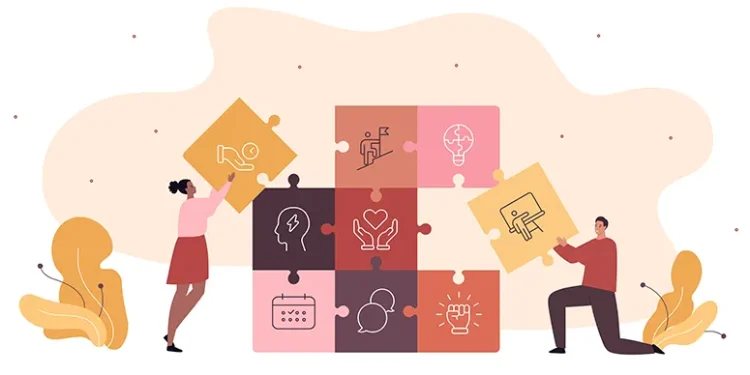 Written by Kelly Koermer and Don Philbrick
Written by Kelly Koermer and Don Philbrick
For today’s young professionals, technical know-how is only part of the equation for career success. Increasingly, employers are emphasizing a different set of must-have abilities—ones that are not necessarily found in textbooks or software programs but are instrumental in nearly every type of job. These abilities are often called soft skills.
“Soft skills, often referred to as transferable skills, are non-technical abilities that focus on how individuals interact, communicate, and manage themselves in various situations,” explains Colleen Leary, Student & Career Development Specialist at Carroll Community College.
Unlike hard skills, which are specific and measurable—like computer coding or machine operation—soft skills are harder to quantify. But, contrary to their name, their impact is undeniable. Employers seek these skills out because they indicate how well a candidate will work with others, manage stress, adapt to change, take initiative, and contribute positively to the overall workplace. In fact, strong soft skills are often what separate a good employee from a great one.
“Soft skills are crucial for personal and professional success,” Leary says. “They influence how people build relationships, collaborate effectively, resolve conflicts, and adapt to challenges. Soft skills are the key to leadership roles and career advancement.”
Understanding this, many colleges have made soft skill development a central part of career programs. Some colleges use the National Association of Colleges and Employers (NACE) Career Readiness Competencies as a framework for career-related goals, integrating soft skill education across academic and extracurricular activities on campus.
NACE emphasizes eight soft skills:
- Career & Self-Development
- Communication
- Critical Thinking
- Equity & Inclusion
- Leadership
- Professionalism
- Teamwork
- Technology
“Students learn about and practice demonstrating one or more of these soft skills during employability skills workshops, career fairs, lunch & learns, career symposiums, mock interviews, career development courses, networking events, site visits, and career counseling sessions,” Leary shares.
But the learning does not stop there. Students continue to build soft skills through participation in special interest clubs, athletics, student government, and on-campus jobs. These experiences provide real-world opportunities to practice collaboration, leadership, time management, and more—skills that transfer directly to the professional setting.
For young professionals preparing to enter the job market, this training is especially important during job interviews. Hiring managers do not just evaluate résumés—they listen for evidence of how candidates handle conflict, take feedback, or lead a team. Knowing how to articulate and demonstrate these abilities can be the key to landing the job.
As workplaces continue to evolve, the importance of soft skills is only expected to grow. In a world where technology changes so rapidly and roles are increasingly collaborative, the ability to communicate clearly, think critically, solve problems, and adapt quickly will remain in high demand. These skills help students prepare for a successful transition to employment and thrive in their new roles. That is why it is so important that learning institutions continue teaching and reinforcing soft skills at every stage of a student’s professional development.










